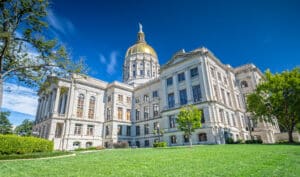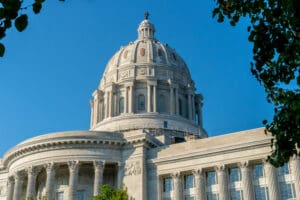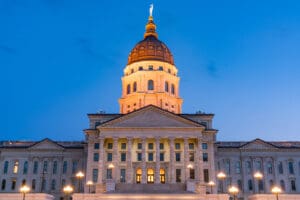The economic crisis caused by the coronavirus pandemic poses a triple challenge for tax policy in the United States. Lawmakers are tasked with crafting a policy response that will accelerate the economic recovery, reduce the mounting deficit, and protect the most vulnerable.
To assist lawmakers in navigating the challenge, and to help the American public understand the tax changes being proposed, the Tax Foundation’s Center for Federal Tax Policy modeled how 70 potential changes to the tax code would affect the U.S. economy, distribution of the tax burden, and federal revenue.
In tax policy there is an ever-present trade-off among how much revenue a tax will raise, who bears the burden of a tax, and what impact a tax will have on economic growth. Armed with the information in our new book, Options for Reforming America’s Tax Code 2.0, policymakers can debate the relative merits and trade-offs of each option to improve the tax code in a post-pandemic world.

The Fiscal Consequences of Increased German Spending
Without aligning fiscal discipline with pro-growth tax policies, Germany and the EU risk high deficits, mounting debt, and sustained inflation.
5 min read
Fiscal Forum: Tax Foundation Europe Interview with Italian Vice-Minister Maurizio Leo
Daniel Bunn had the opportunity to interview the Vice-Minister for Economy and Finance of Italy, Maurizio Leo, about the tax policy priorities of the Italian government. The conversation shows a commitment to reforming rules that create legal uncertainty and support competitiveness.
5 min read
Localities Opt Out of Georgia’s New Homestead Tax Exemption
Policymakers may consider a broader, more comprehensive property tax reform that creates a uniform system with effective levy limits to prevent unauthorized increases in property tax revenues and, in most cases, property tax bills.
4 min read
Opportunities to Reform the Food and Drug Administration’s Center for Tobacco Products
New leadership at the FDA will have the opportunity to revisit decisions that have shifted consumption to illicit products and discouraged harm reduction—policies that, however well intended, have come at a significant cost in lives.
7 min read
Missouri’s New Tax Cut Bill Sets the Stage for a Flat Tax Future
The flat tax trend is gaining momentum nationwide, and Missouri lawmakers are right to identify income tax rate reductions as particularly pro-growth.
4 min read
Tax and Financial Illiteracy Are Costing Americans
The better we understand taxes, the better we can manage our finances, but it starts with familiarizing ourselves with basic tax concepts like how tax brackets work.
3 min read
No Tax on Tips and Overtime Proposals Gain Steam Across States, but Remain a Bad Idea
The trend of tax exemptions on tips, overtime, and bonuses may sound like a win for workers, but it is a shortsighted fix with long-term drawbacks.
11 min read
North Dakota’s Property Tax Reform Proposals: A Three-Part Approach
North Dakota’s financial position provides it with a rare capacity to deliver meaningful property tax relief. However, policymakers must balance immediate relief with fiscal sustainability and ensure that local governments remain adequately funded in the years ahead.
5 min read
Kansans May Finally Get a Low, Flat Income Tax
If adopted, these reforms would make Kansas’ tax code substantially more competitive while returning revenue growth to taxpayers in a fiscally responsible manner.
5 min read
Taxing Life Insurance
As Congress attempts to prevent the expiration of major Tax Cuts and Jobs Act provisions, it needs to find ways to pay for them. Ideally, it should use the least economically harmful means possible.
3 min read